In today’s digital age, streaming high-quality video content has become a necessity for both personal and professional use. Whether you’re a content creator, a business, or a streaming enthusiast, a 4K IPTV encoder is a must-have tool to deliver stunning visuals to your audience. But what exactly is a 4K-IPTV encoder, and how do you choose the right one? In this guide, we’ll break it all down for you in simple terms, complete with product recommendations, a buying guide, and FAQs.
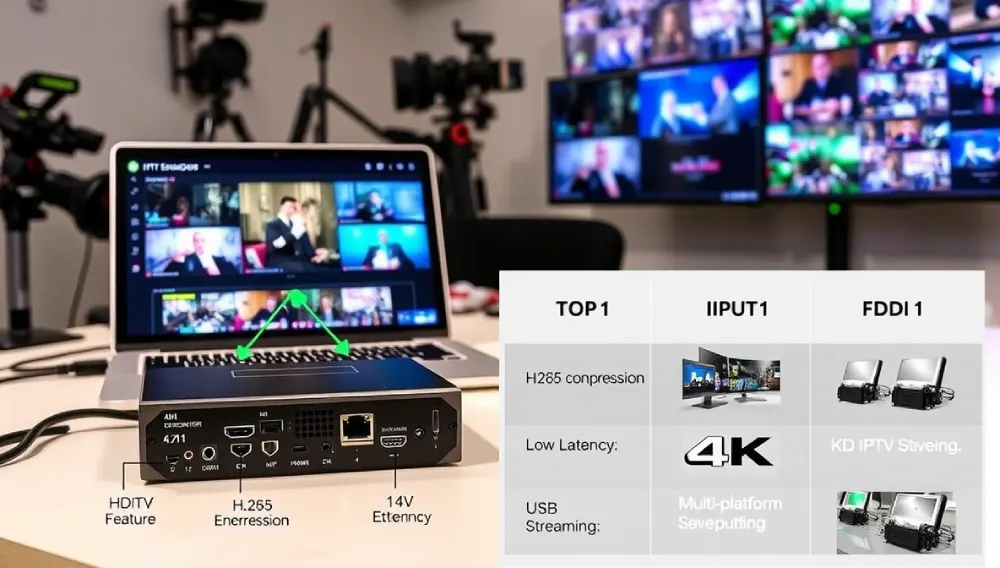
What is a 4K IPTV-Encoder?
A 4K encoder is a device or software that converts raw video content into a digital format suitable for streaming over the internet. It compresses high-resolution 4K video (3840 x 2160 pixels) into a streamable format while maintaining exceptional quality. This is essential for delivering smooth, buffer-free streaming experiences to viewers.
IPTV (Internet Protocol Television) refers to the delivery of television content over the internet, and a 4K encoder ensures that the content is optimized for modern devices like smart TVs, smartphones, and tablets.
Why Do You Need a 4K IPTV-Encoder?
Here are some key reasons why an IPTV encoder is worth the investment:
- Superior Video Quality: 4K resolution offers four times the detail of Full HD, making your content look crisp and professional.
- Wider Compatibility: Modern devices and platforms support 4K streaming, ensuring your content reaches a broader audience.
- Future-Proofing: As 4K becomes the standard, investing in a 4K encoder ensures your setup remains relevant for years to come.
- Enhanced Viewer Experience: High-quality streams keep viewers engaged and reduce the likelihood of buffering or drop-offs.
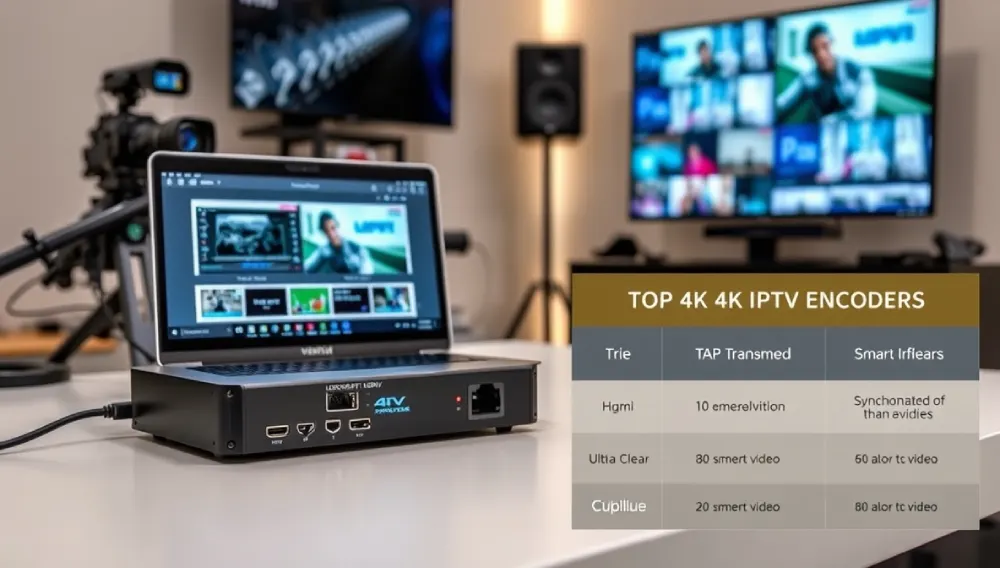
Key Features
When shopping for a 4K IPTV, keep an eye out for these essential features:
- Resolution Support: Ensure the encoder supports true 4K resolution (3840 x 2160 pixels) and can handle high frame rates (e.g., 60fps).
- Compression Technology: Look for encoders that use advanced codecs like H.265 (HEVC) for efficient compression without sacrificing quality.
- Low Latency: For live streaming, low latency is crucial to ensure real-time interaction with your audience.
- Multi-Platform Streaming: Choose an encoder that supports streaming to multiple platforms like YouTube, Facebook, Twitch, and more.
- User-Friendly Interface: A simple, intuitive interface makes it easier for beginners to set up and use.
- Scalability: If you plan to grow your streaming setup, opt for an encoder that can handle higher workloads.
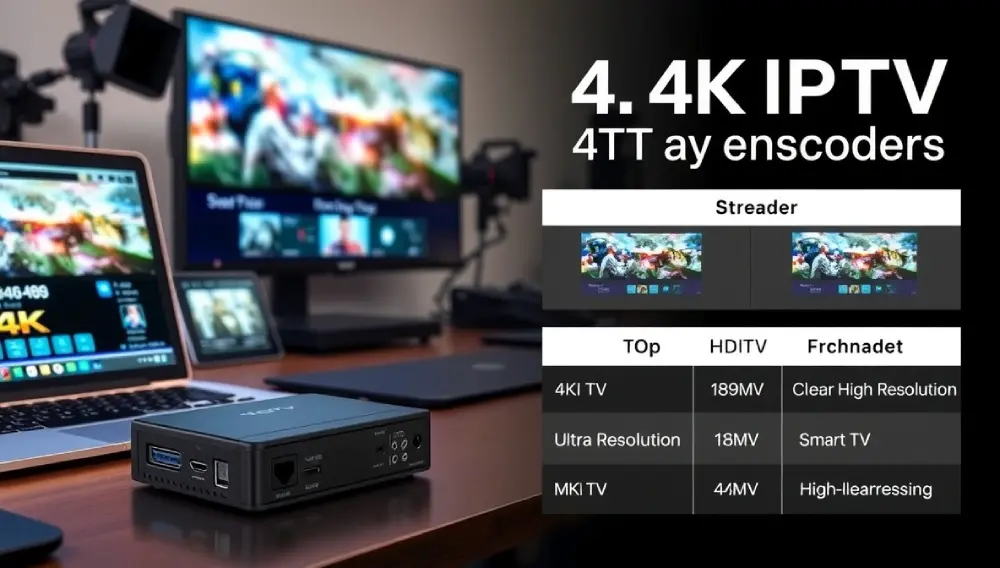
Top Product Recommendations
Here are three of the best 4K IPTV encoders on the market, along with their pros and cons:
1. Teradek Vidiu X
- Pros:
- Compact and portable design.
- Supports 4K HDR streaming.
- Built-in cellular bonding for reliable streaming.
- Easy-to-use interface.
- Cons:
- Expensive compared to other options.
- Limited to 4K at 30fps.
2. Blackmagic Design ATEM Mini Extreme ISO
- Pros:
- Supports 4K at 60fps.
- Built-in switcher for multi-camera setups.
- Records directly to an external drive.
- Affordable for its features.
- Cons:
- The steeper learning curve for beginners.
- Requires additional hardware for full functionality.
3. Haivision Makito X4
- Pros:
- Ultra-low latency for live streaming.
- Supports H.265 encoding.
- Rugged design for professional use.
- Scalable for large-scale deployments.
- Cons:
- High price point.
- Overkill for small-scale users.
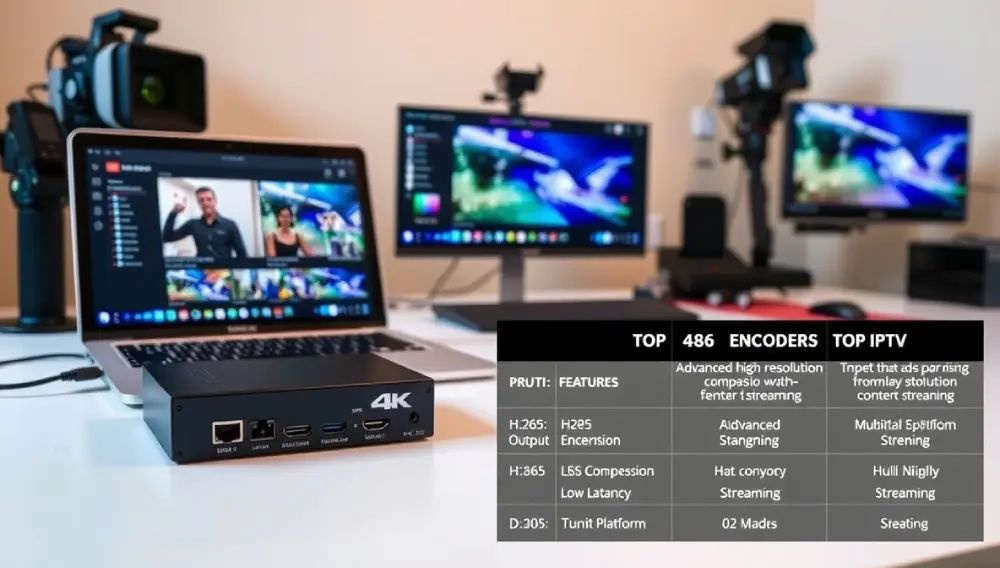
Buying Guide
Choosing the right 4K IPTVe-encoder depends on your specific needs and budget. Here’s a step-by-step guide to help you make the best decision:
- Determine Your Use Case: Are you streaming live events, gaming, or creating on-demand content? Different encoders excel in different areas.
- Check Compatibility: Ensure the encoder works with your camera, microphone, and streaming platform.
- Set a Budget: 4K encoders can range from a few hundred to several thousand dollars. Decide how much you’re willing to spend.
- Test Before You Buy: If possible, try out the encoder to see if it meets your expectations.
- Read Reviews: Look for user reviews and testimonials to gauge reliability and performance.
Personal Experience
As someone who has tested multiple 4K-IPTV encoders, I can confidently say that the Teradek Vidiu X is my top pick for its portability and ease of use. It’s perfect for on-the-go streaming, and the built-in cellular bonding ensures a stable connection even in remote locations. However, if you’re on a budget, the Blackmagic Design ATEM Mini Extreme ISO offers incredible value with its 4K 60fps support and built-in switcher.
FAQs
1. What’s the difference between hardware and software encoders?
- Hardware Encoders: Dedicated devices that offer better performance and reliability for live streaming.
- Software Encoders: Programs that run on your computer, offering more flexibility but requiring higher system resources.
2. Can I use a 4K encoder for non-4K content?
Yes, most 4K encoders are backward compatible and can handle lower resolutions like 1080p or 720p.
3. Do I need a powerful internet connection for 4K streaming?
Absolutely. 4K streaming requires a stable, high-speed internet connection with at least 25 Mbps upload speed.
4. Is H.265 better than H.264?
Yes, H.265 offers better compression efficiency, meaning you can stream 4K content at lower bitrates without losing quality.
5. Can I stream to multiple platforms simultaneously?
Many 4K encoders support multi-platform streaming, but you may need additional software or services for seamless distribution.
Final Thoughts
A 4K IPTV is a game-changer for anyone looking to stream high-quality video content. Whether you’re a beginner or a professional, investing in the right encoder can elevate your streaming game and provide your audience with an unforgettable viewing experience.
Remember to consider your specific needs, budget, and the features that matter most to you. With the right 4K IPTV encoder, you’ll be ready to take your content to the next level.
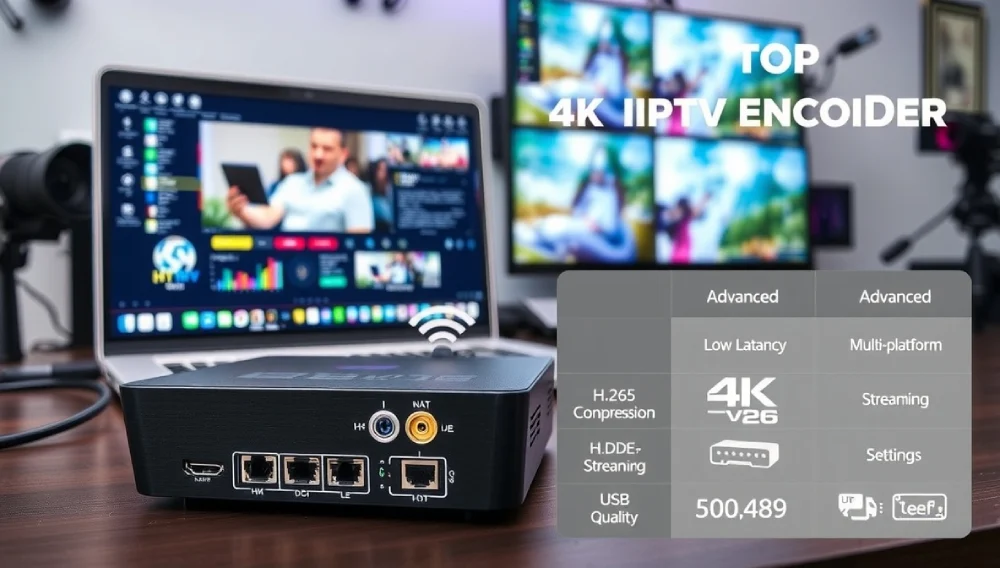

2 thoughts on “The Best 4K IPTV Encoders”